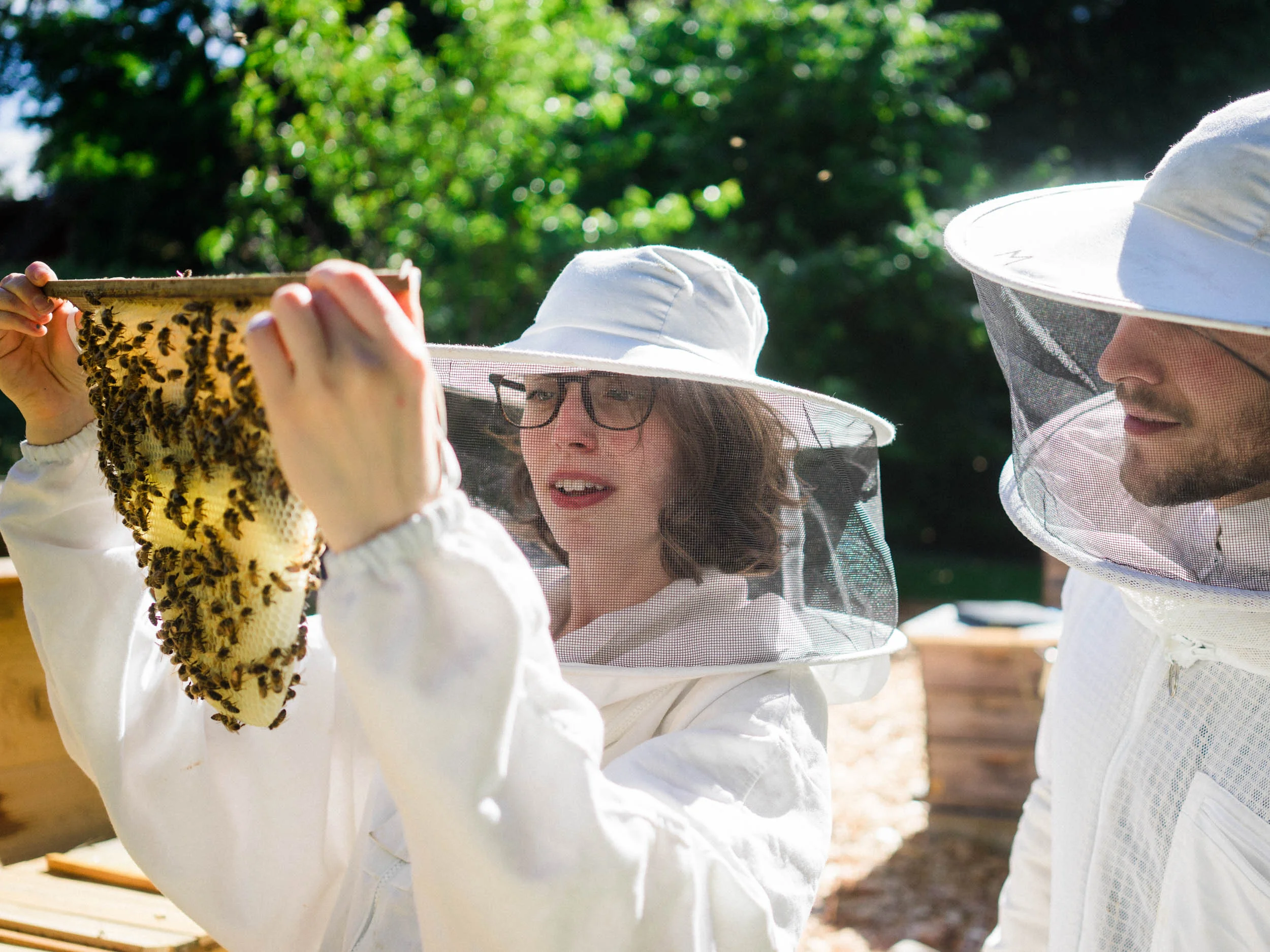If you’ve ever fallen down the YouTube rabbit hole, you’ve likely encountered countless “bee whisperers” working their hives sans protective gear. Experienced beekeepers are masters at reading their bees, and often prefer to forgo the cumbersome suits and gloves in order to increase tactile sensitivity during inspections. Newbees, however, shouldn’t assume that they’ll be able to work their hives that way - at least not for a while!
Standing in a cloud of flying, stinging insects is intimidating for everyone in the beginning. Tempering your fear of stings with protective gear will provide the confidence you need to become acquainted with your new wards more quickly.
In our opinion all beginning beekeepers should:
Wear a veil. Bees detect and respond aggressively to the carbon dioxide in our breath, drawing them right to the face. Veils can come attached to a jacket or a full suit. We prefer the added comfort of a full suit for hive inspections.
Wear bee gloves. Find a pair made of flexible leather and a long cuff with an elastic band to pull over your shirt/jacket/suit. Many people wear nitrile gloves since bees have a hard time getting purchase on the slippery material, and if they do sting, stingers are easy to pull away. We’ve tried these out and found that bees readily sting through nitrile gloves. We prefer the security leather provides.
Tuck in. When bees fall off comb during inspections, they'll usually crawl to the nearest dark space. Don’t let that be up your pant leg! Tuck the bottom of your pants into socks or boots, and make sure your clothing and gear don’t leave any skin exposed.
For our list of essential beekeeping gear, click here!
As you gain confidence, you may decide to reduce your gear for low-risk inspections. For example, we often don’t wear gloves in early spring when colony populations are lower and the bees are most docile. Once colony populations peak in late spring and summer, the gloves are donned. In our experience, finger stings are among the most irritating, causing dexterity issues for several days.
Gear or no gear, the occasional sting is inevitable! Bee stings hurt, but taking precautions like wearing gear, using a smoker, and being careful to minimize your impact during inspections can reduce the likelihood significantly. Reactions to bee stings vary in severity between individuals and location on your person. Pro tip: ice is the best remedy across the board. For more information on bee stings, click here.
Do you have a known bee sting allergy? Don’t risk keeping honey bees. Get involved in another way.
